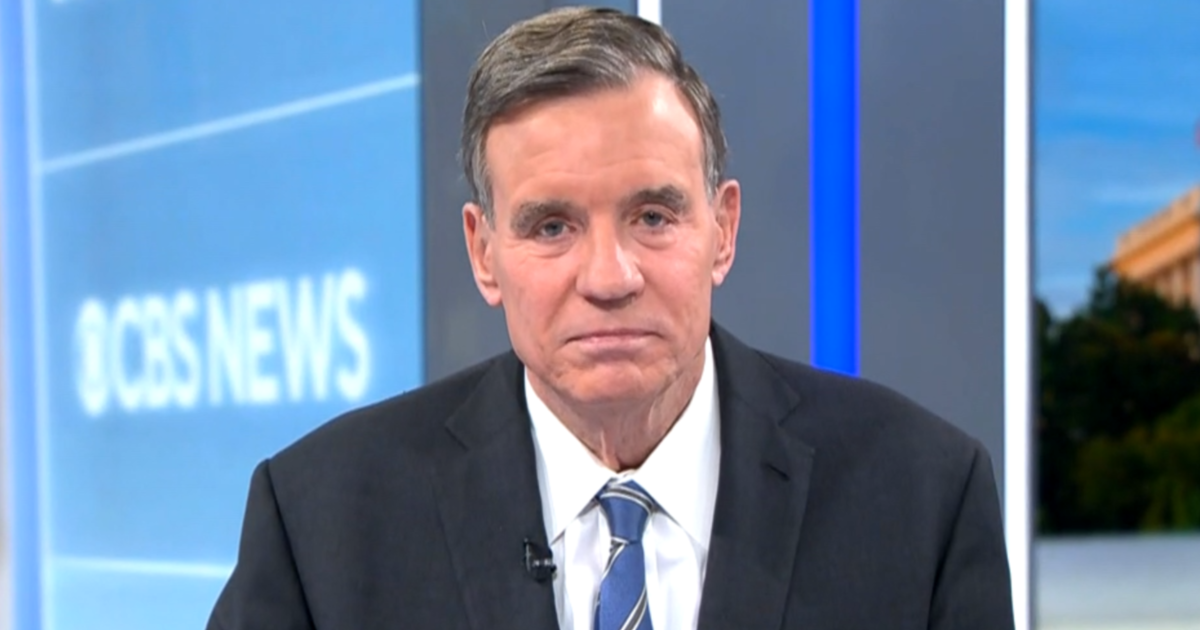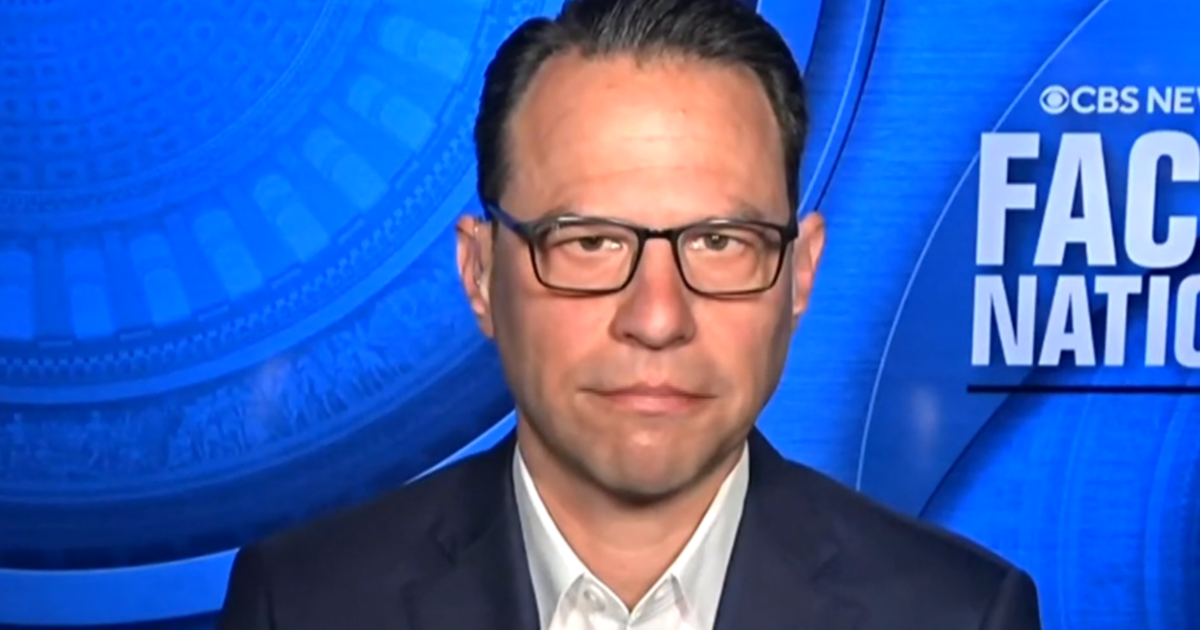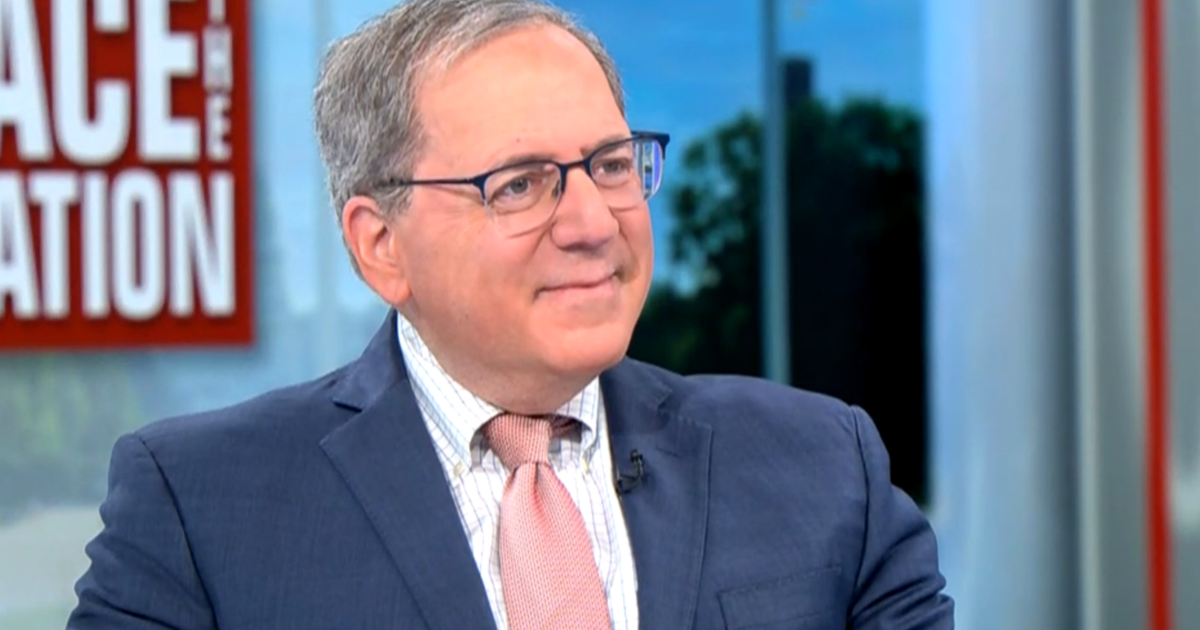Transcript: NASA Administrator Jim Bridenstine on "Face the Nation," July 14, 2019
The following is a transcript of the interview with NASA Administrator Jim Bridenstine that aired Sunday, July 14, 2019, on "Face the Nation."
MARGARET BRENNAN: We are joined by NASA Administrator Jim Bridenstine. Thank you and good morning.
NASA ADMINISTRATOR JIM BRIDENSTINE: Good morning. It's great to be here.
MARGARET BRENNAN: This is an incredible anniversary week for NASA.
BRIDENSTINE: It is.
MARGARET BRENNAN: The last man to walk on the Moon was 1972.
BRIDENSTINE: Jack- Gene Cernan, yes.
MARGARET BRENNAN: Yeah, you- you get an A. Tell me, though, about your plans for Artemis, the plan to put humans back on the Moon just five years from now.
BRIDENSTINE: That's right. So we want to go back to the Moon sustainably, in other words, to stay, but we also want to keep our eye on what is President Trump's goal? What is his vision? He wants to put an American flag on Mars. So we go to the Moon so that we can learn how to live and work on another world and ultimately have more access to the solar system than ever before. So that we can get- no kidding- to Mars. But here's, I think, the important point about Artemis, specifically. In the 1960s, we- we love Apollo. What an amazing program, a contest of great powers. The United States of America in the Cold War, and of course we came out on top. But I think the important thing is, in those days all of our astronauts came from test pilots and fighter pilots and there were no opportunities for women. Today, under the Artemis program we have a very diverse, highly qualified astronaut corps that includes women. And Artemis, in Greek mythology, happens to be the twin sister of Apollo. So now when we go back to the Moon- and she was the goddess of the moon, by the way- so now when we go back to the Moon, we go with all of America. And I think that's a great message.
MARGARET BRENNAN: So the first steps in 2024 will be by women?
BRIDENSTINE: That's the goal.
MARGARET BRENNAN: A female astronaut?
BRIDENSTINE: Yes.
MARGARET BRENNAN: But all of this requires a- a rocket that's never flown, a space capsule that hasn't flown, a lunar lander hasn't even been designed yet. Given the track record, how realistic is that five year timeline?
BRIDENSTINE: So the way I talk about this, there's two risks. There's technical risk and then there's political risk. We would be on the Moon right now if it weren't for the political risk. We would be on Mars, quite frankly, by now, had it not been for the political risk. But as you've identified, we did 16--
MARGARET BRENNAN: What do you mean political risk? You mean funding?
BRIDENSTINE: I'm talking about funding. So in the past, in the 1990s and in the early 2000s, we made efforts to go back to the Moon and onto Mars and in each case the program was too long. It took too- too long and too much money. What the president said is, in order to retire the political risk we want to go faster. We want to go within five years. The vice president delivered a message at the National Space Council and he said, "we want to go back to the Moon within five years." Then they amended the president's budget request to give us the resources necessary to make it a reality. And that's where we are.
MARGARET BRENNAN: But then the president tweeted "NASA should not be talking about going to the Moon. We did that 50 years ago. We should be focused on much bigger things." Is he fully onboard with what you just laid out?
BRIDENSTINE: A hundred percent. I talked to him after that tweet. I wanted to make sure we were in alignment, we absolutely are. He understands, and in fact he said to me, "I know we've got to go to the Moon to get to Mars." But he said, "What is that generational achievement that will inspire all of Americans?" It's putting an American flag on Mars. He said, "Make sure you're committed to the- to the flag on Mars."
MARGARET BRENNAN: You've said before you believe in science and you believe that humankind is contributing to climate change. Have you suggested some kind of major earth initiative? What is NASA doing about the planet we are currently living on?
BRIDENSTINE: So what NASA's job is, is to study the earth and every part of the electromagnetic spectrum. And we have been doing that, we continue to do that, and we share that data with the entire world and we do it for free to the entire world.
MARGARET BRENNAN: And you share that with President Trump who has been a skeptic of--
BRIDENSTINE: It's available--
MARGARET BRENNAN: --human contribution to climate change?
BRIDENSTINE: It's- It's available to the entire world for free. It's online, anybody can have access to it and of course--
MARGARET BRENNAN: Does he believe you when you lay this out to him?
BRIDENSTINE: So, I'm- I'm one agency. There are other agencies in the Federal Government, EPA, NOAA, others. When I talk to the president I'm talking about space exploration in general. But we do have a role to study the earth and it is changing and the president is very committed to clean water and clean air. Know this, NASA is spending as much money on studying the Earth as we ever have and of course when you look at the comparison between what we're investing in studying the Earth and what others are investing, look at all of our partners on the international space station, 15 countries. The European Space Agency, Russia, Canada, Japan. We are spending as much as the rest of them combined.
MARGARET BRENNAN: America's rivalry with the Soviet Union helped to fuel some of the initiative 50 years ago. Do you see a scenario where either China's feeling that for the United States or there is a chance to partner with China?
BRIDENSTINE: So, quite frankly, at this point neither one of those. But you're right. Apollo was a contest of great powers. We were trying to demonstrate technological prowess. And the- the goal was to demonstrate that our political system and economic system was superior. And in fact, we achieved that. But know this, we're doing amazing things. We're so far ahead of China right now, it's not even a comparison. Just recently we had the crew drag and attach to the International Space Station. Before that we landed on the far side of Mars. For the eighth time in human history, we landed on Mars. The United States of America is the only country that's been able to achieve that. We're now entering orbit around Bennu. For the first time in human history doing an asteroid--
MARGARET BRENNAN: Okay.
BRIDENSTINE: --return mission. And then of course, brilliant images of Pluto and that same spacecraft now four billion miles from Earth, giving us more science than ever before. We're--
MARGARET BRENNAN: Thank you.
BRIDENSTINE: We are winning.
MARGARET BRENNAN: Thank you and we will be watching. We hope all of you will, all this week on CBS. Stay with us.



